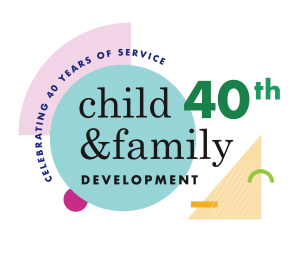By Lindsey Anuzis, MA, LCMHCA, NCC, RBT ~ Child and Family Development
There is no doubt that things are looking quite a bit different as we all transition into this new school year. For most, kids are gearing up and logging on for virtual learning, for others there may be a combination of remote and in-person hybrid learning, and some may even be returning to complete in person schooling. Regardless of what the method of learning may look like for you and your kids, there is a good chance that the stress, and feelings of discomfort regarding uncertainty are at an all-time high.
Uncertainty is a difficult concept in our society. We thrive when we have our predictable routines and over-booked schedules. I am sure I am not alone in my enjoyment of having plans with friends and vacations to look forward to… but with the current stage of the coronavirus in our world; fun plans and trips are having to be postponed.
While these times are incredibly tough for our kids, they are resilient and tend to adapt more quickly than their adult counterparts. Parents on the other hand are struggling. Struggling with the various roles they must fill each day, which may have already been difficult pre-COVID 19. Our stress levels have been exacerbated.
Stress is a reaction to a situation where we feel threatened or anxious. Stress can be positive (e.g. preparing for a wedding) or negative (e.g. living through a global pandemic). It is likely you have been living in a heightened state of “fight, flight, or freeze” mode for months, which can be exhausting in and of itself. Learning healthy ways of coping to manage stress and getting the right care and support are more important now than ever.
Try out these strategies to help relieve stress:
1. Explore your own coping strategies and even try some new ones!
2. Practice Mindfulness
3. Create a routine for yourself and your family
4. Practice self-care and ask for help and/or support when you need it
Coping Skills
Coping skills are the daily go-to strategies that help you tolerate, deal with, and relieve stress, and improve your mood. They can be behavioral or mental in nature, and are utilized to maintain physical, and emotional well-being. There are various quick and healthy coping skills you can utilize, see below for a few ideas!
– Take a quick 5-minute mood booster every hour while you work. Setting an alarm for this will help remind you to get up and move (walk, or even just stretch). I like to think of movement as medicine- it can offer a shift in perspective while also improving your mood!
– Play with a pet, this will not only get you up and moving, but interacting with pets can also increase oxytocin (the love and connection hormone) while decreasing cortisol (stress) levels.
– Listen to your favorite music, write down your thoughts in a journal, draw or color.
– Utilize aromatherapy (essential oils in a diffuser work great!).
– Squeeze a stress ball.
– Look at photos of people, places, or things that bring you joy.
Practice Mindfulness
Mindfulness is a common term these days, but do you really know what it means?
Mindfulness is a mental state achieved by focusing one’s awareness on the present moment, while calmly acknowledging and accepting one’s feelings, thoughts, and bodily sensations as they are. It is something I often incorporate into my therapy sessions with clients. Focusing on the present, the here and now, can help reduce some of those scary looming “what if” thoughts by teaching you to intentionally settle your mind!
You may have tried engaging in mindfulness or meditation in the past and felt awkward, that’s okay! Trying something new can feel uncomfortable. I used the word practice, because mindfulness really does take some practice! Everyone is different and different types of mindful exercises work better for some than others! To help get you started I have listed a few mindful meditation apps below that I really enjoy:
Create a Routine
So, you’ve started the intentional practice of settling your mind. Wonderful job! While it helps, it may not fix everything immediately; so, another way to alleviate some anxious feelings related to uncertainty is to create, and maintain some semblance of a routine, however that may look for you. There are many small ways to create structure in your day. Maybe it is waking up before everyone in your home to enjoy that first mug of coffee in the stillness of the morning while you look over your schedule, or an early morning workout to get your blood pumping while the kids eat breakfast… It could be ending the work day by walking the family dog as a literal way to “disconnect”, or something as simple as scheduling a video chat with loved ones, or a weekly family movie night after Taco Tuesday. Whatever it may be for you and your family; creating and maintaining this consistent routine can help reduce the feelings of uncertainty by providing expectations, structure, stability, and something to look forward to.
Practice regular self-care and ask for help and/or support when you need it
Self-care is regularly scheduled maintenance that helps with prevention and restoration from stress. It isn’t always pedicures and shopping sprees, though those can be nice. Self-care can be as simple and as impactful as giving yourself permission to be unproductive (delegate responsibilities), allowing yourself to rest, and doing something that fills you up (creating art, dancing and singing, being in nature, or connecting with loved ones to name a few). If things ever seem to be too much to handle on your own, self-care can also be seeking out support from a licensed mental health professional. You can’t pour from an empty cup, so prioritize taking care of yourself first!
Lindsey Anuzis, MA, LCMHCA, NCC, RBT is a Licensed Clinical Mental Health Counselor Associate as well as a Registered Behavior Technician at the Midtown and Pineville locations of Child & Family Development. Lindsey obtained her Bachelor of Science in Psychology from High Point University in High Point, NC and her Master of Arts in Clinical Mental Health Counseling from Wake Forest University in Winston Salem, NC. She provides ongoing therapy services to preschoolers through young adults to address concerns related to mood, behavior, and social skills. Her areas of clinical interest include stress and coping skills, life transitions, grief and loss, self-esteem, identity concerns, bullying and relationship issues, wellness counseling with a mind body emphasis and trauma. Contact us to schedule an intake appointment with Lindsey today.
Child & Family Development

Locations:
Mitdtown:
4012 Park Road, Suite 200
Charlotte, NC 28209
704.332.4834
Pineville:
11940 Carolina Place Parkway, Suite 200
Charlotte, NC 28134
704.541.9080
Website | Facebook | Instagram | Twitter




